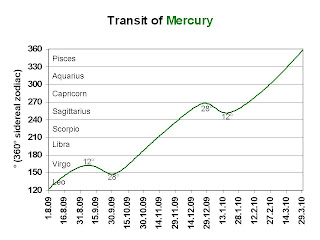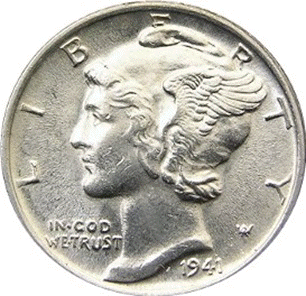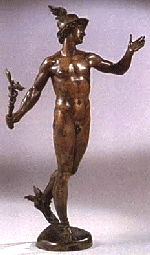 Due to it having an orbit around the Sun that lies within the orbit of Earth, the fast moving planet Mercury is seen from Earth to enter into retrograde motion in the skies about three times every year. For many, this period signifies a time when the indications of Mercury may encounter some problem. According to the Systems’ Approach (SA), this is not necessarily so and more attention is paid to the stationary motion on a given degree, when Mercury comes to a temporary halt in transit and has a relatively prolonged influence. Before we explore this issue, let us first examine this planet and its astrological meaning.
Due to it having an orbit around the Sun that lies within the orbit of Earth, the fast moving planet Mercury is seen from Earth to enter into retrograde motion in the skies about three times every year. For many, this period signifies a time when the indications of Mercury may encounter some problem. According to the Systems’ Approach (SA), this is not necessarily so and more attention is paid to the stationary motion on a given degree, when Mercury comes to a temporary halt in transit and has a relatively prolonged influence. Before we explore this issue, let us first examine this planet and its astrological meaning.Planetary characteristics
 Mercury is the innermost and smallest planet in the Solar System, orbiting the Sun once every 88 days. It has an equatorial radius of 2,440 km. While it is larger than the Moon (1,738 km), Mercury is smaller than Ganymede the largest moon of Jupiter and Titan, the largest moon of Saturn. Mercury is bright when viewed from Earth, but is not easily seen as its greatest angular separation from the Sun is only 28.3°. Since Mercury is normally lost in the glare of the Sun, unless there is a solar eclipse, Mercury can only be viewed in morning or evening twilight.[1] Mercury is similar in appearance to the Moon: it is heavily cratered with regions of smooth plains, has no natural satellites and no substantial atmosphere. However, unlike the moon, it has a large iron core, which generates a magnetic field about 1% as strong as that of the Earth. It is an exceptionally dense planet due to the large relative size of its core. Surface temperatures range from about −183 °C to 427 °C ( −297 °F to 801 °F).
Mercury is the innermost and smallest planet in the Solar System, orbiting the Sun once every 88 days. It has an equatorial radius of 2,440 km. While it is larger than the Moon (1,738 km), Mercury is smaller than Ganymede the largest moon of Jupiter and Titan, the largest moon of Saturn. Mercury is bright when viewed from Earth, but is not easily seen as its greatest angular separation from the Sun is only 28.3°. Since Mercury is normally lost in the glare of the Sun, unless there is a solar eclipse, Mercury can only be viewed in morning or evening twilight.[1] Mercury is similar in appearance to the Moon: it is heavily cratered with regions of smooth plains, has no natural satellites and no substantial atmosphere. However, unlike the moon, it has a large iron core, which generates a magnetic field about 1% as strong as that of the Earth. It is an exceptionally dense planet due to the large relative size of its core. Surface temperatures range from about −183 °C to 427 °C ( −297 °F to 801 °F).Mythological origin
 Mercury is the Roman god of communication, transporation, social intercourse and commerce. the origin of Mercurius (the Latin name) is in the Greek legend of Hermes, who was a great Olympian God. Before Hermes there was also Thoth, an Egyptian god of wisdom and sciences.[2] The Norse god Odin is also linked to Mercury. Woden’s day (Wedenesday) is known as Mercredi (Day of Mercury) in French.[3] Hermes was considered the god of animal husbandry, roads, travel, hospitality, heralds, diplomacy, trade, thievery, language, writing, persuasion, cunning wiles, athletic contests, gymnasiums, astronomy, and astrology. He was also the personal agent and herald of Zeus, the king of the gods. Hermes was depicted as either a handsome and athletic, beardless youth, or as an older bearded man. His attributes included the herald's wand or kerykeion (Latin caduceus), winged boots, and sometimes a winged travellers cap and chlamys cloak.[4]
Mercury is the Roman god of communication, transporation, social intercourse and commerce. the origin of Mercurius (the Latin name) is in the Greek legend of Hermes, who was a great Olympian God. Before Hermes there was also Thoth, an Egyptian god of wisdom and sciences.[2] The Norse god Odin is also linked to Mercury. Woden’s day (Wedenesday) is known as Mercredi (Day of Mercury) in French.[3] Hermes was considered the god of animal husbandry, roads, travel, hospitality, heralds, diplomacy, trade, thievery, language, writing, persuasion, cunning wiles, athletic contests, gymnasiums, astronomy, and astrology. He was also the personal agent and herald of Zeus, the king of the gods. Hermes was depicted as either a handsome and athletic, beardless youth, or as an older bearded man. His attributes included the herald's wand or kerykeion (Latin caduceus), winged boots, and sometimes a winged travellers cap and chlamys cloak.[4]Systems’ Approach meaning
 In SA, careful consideration is given to the accurate interpretation of the astrological meaning of the planets. Mercury is considered to rule "the analytical faculties, speech, sharp intellect, power of discrimmination and confidence. It is personified as a prince, thinker, mathematician, accountant, trader and related business fields. He is a mixture of three humours, namely phlegm, bile and wind. He rules skin, mind, nervous system, lungs, tounge, hands and mouth. When weak and or afflicted it causes psychic diseases, nervous breakdown, leucoderma, impotence, vertigo, deafness, asthma and diseases of the respirotory canal, intestines and insomnia, etc.”[5]
In SA, careful consideration is given to the accurate interpretation of the astrological meaning of the planets. Mercury is considered to rule "the analytical faculties, speech, sharp intellect, power of discrimmination and confidence. It is personified as a prince, thinker, mathematician, accountant, trader and related business fields. He is a mixture of three humours, namely phlegm, bile and wind. He rules skin, mind, nervous system, lungs, tounge, hands and mouth. When weak and or afflicted it causes psychic diseases, nervous breakdown, leucoderma, impotence, vertigo, deafness, asthma and diseases of the respirotory canal, intestines and insomnia, etc.”[5]Who is affected by the transit station?
The normal duration of a Mercury station is a week to 10 days. During this period persons or nations with horoscopes that have the most effective points (rising degree with +/- 5° orb) or planets in this degree or in the same degree in Pisces, will feel its influence more closely. Persons or nations with Aries, Aquarius or Libra rising will experience this transit station as a strain, as Mercury becomes a functional malefic planet in these cases. This is because the Moolatrikona sign that Mercury rules, Virgo, then falls into respectively the 6th house of conflict, health or financial strain, the 8th house of obstacles and endings, or the 12th house of losses and remote places. During such transits, the above ascendants may have increased strain or even setbacks with respect to the relevant indications if Mercury is afflicting weak and afflicted placements or is in a mutual affliction with a natal functional malefic planet in the horoscope. For all other ascendants, Mercury is a functional benefic planet as it then either rules the 1st house of self and fame, 2nd house of wealth, status and family, 3rd house of enterprise and courage, 4th house of fixed assets, mental stability and mother, 5th house of children, creativity and romance, 7th house of spouse and short foreign trips, 9th house of fortune and father, 10th house of career or 11th house of income, friends and goals. In other words, persons or nations with Virgo, Leo, Cancer, Gemini, Taurus, Pisces, Capricorn, Sagittarius and Scorpio rising will experience the transit stations of Mercury favourably as per the relevant indications. The only exception for these ascendants is if Mercury is involved in aspects from natal functional malefic planet(s) in the natal chart. In this case, the relevant indications would be come under strain during the close transit contact.
Forthcoming stations of Mercury
Peak: 2-12 September: 11°-12°-11° Virgo
Trough: 25 September - 5 October: 29°-28°-29° Leo
Peak: 22-30 December: 26°-28°-26° Sagittarius
Trough: 11-20 January: 13°-12°-13° Sagittarius
In early September 2009, Mercury will slow down and become stationary direct at 12° Virgo on September 7 and remain close to this degree until September 12. During this time those with 12° rising or planets at 12° Virgo or Pisces will feel the influence for better or worse. After the station in the 2nd week of September, Mercury will then move backwards until September 30 when it again goes stationary direct, after which it enters forward motion. Mercury will again in late 2009 and early 2010 enter its relatively brief stationary periods.
Summary
It is not the retrograde motion of Mercury but its stationary period that may produce difficulty. This is especially so for those with Aries, Libra or Aquarius rising, where Mercury becomes a functional malefic planet. But problems may also be seen for those with other rising signs if the stationary Mercury is afflicted through natal or transit placements.
References
[1] Mercury's Orbit and Phases, by David McCann
[2] Mercury – Wikipedia entryhttp://en.wikipedia.org/wiki/Mercury_(planet)
[3] About Thoth
http://www.hermes-press.com/Perennial_Tradition/PTch6.htm
[4] The Mythological origins of Hermes
http://www.theoi.com/Olympios/Hermes.html
[5] Application of Prasna Astrology (Based on the Systems’ Approach) by Prof. V.K. Choudhry and K. Rajesh Chaudhary, Sagar Publications, 2002.
http://www.yournetastrologer.com/astrology_books_home.htm
No comments:
Post a Comment